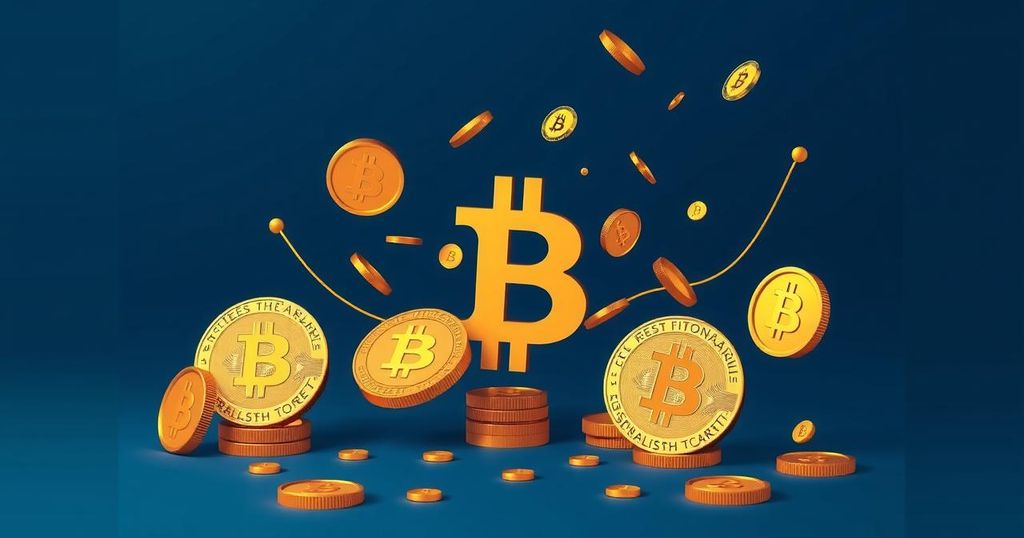Trump Administration Explores Tariffs for Strategic Bitcoin Reserve
The Trump administration is exploring the use of tariffs and other methods to build a strategic Bitcoin reserve without impacting taxpayers. The initiative aims to acquire Bitcoin sustainably, collaborating with key government officials and endorsing legislative proposals to establish a reserve funded by revalued gold certificates. Moreover, Bo Hines advocates for the adoption of blockchain technology to address inefficiencies in the current financial system.
The Trump administration is considering alternative funding methods, such as tariffs, to build a strategic Bitcoin reserve. According to Bo Hines, the administration’s key crypto advisor, these strategies aim to secure Bitcoin without imposing financial burdens on taxpayers. Hines stated, “Everything’s on the table,” highlighting the creative approaches being evaluated for Bitcoin acquisition.
The objective is to acquire significant amounts of Bitcoin without impacting taxpayers, as reiterated by Hines. He noted that the administration’s intention is to buy Bitcoin sustainably, emphasising commitment to hold these assets long-term, similar to gold reserves. This initiative involves collaboration among key officials, including the Secretaries of Commerce and Treasury.
Hines praised Senator Cynthia Lummis’ BITCOIN Act of 2025, which aims to establish a Strategic Bitcoin Reserve through congressional approval. The bill suggests using revalued gold certificates to fund the purchase of 1 million Bitcoins over five years, underscoring the initiative’s long-term asset strategy. Hines expressed willingness to consider swapping Fort Knox gold for Bitcoin, provided it does not disrupt the government’s budget.
The administration’s strategy encompasses internal portfolio adjustments and external revenue opportunities for Bitcoin acquisition. Hines affirmed, “No stone will be unturned” in the exploration of funding options.
Hines has voiced strong support for blockchain technology, advocating its potential to modernise America’s financial system. He highlighted inefficiencies in the current banking framework, such as delays and hidden fees, as essential areas for improvement. Hines believes digital assets can drive substantial improvements in transparency and efficiency within financial transactions.
He stated, “Blockchain technology will revolutionise our outdated systems.” This optimism is grounded in the view that new technologies emerging in the digital asset sector will facilitate a transformation of America’s financial interactions, making transactions simpler, faster, and clearer for all users.




Post Comment